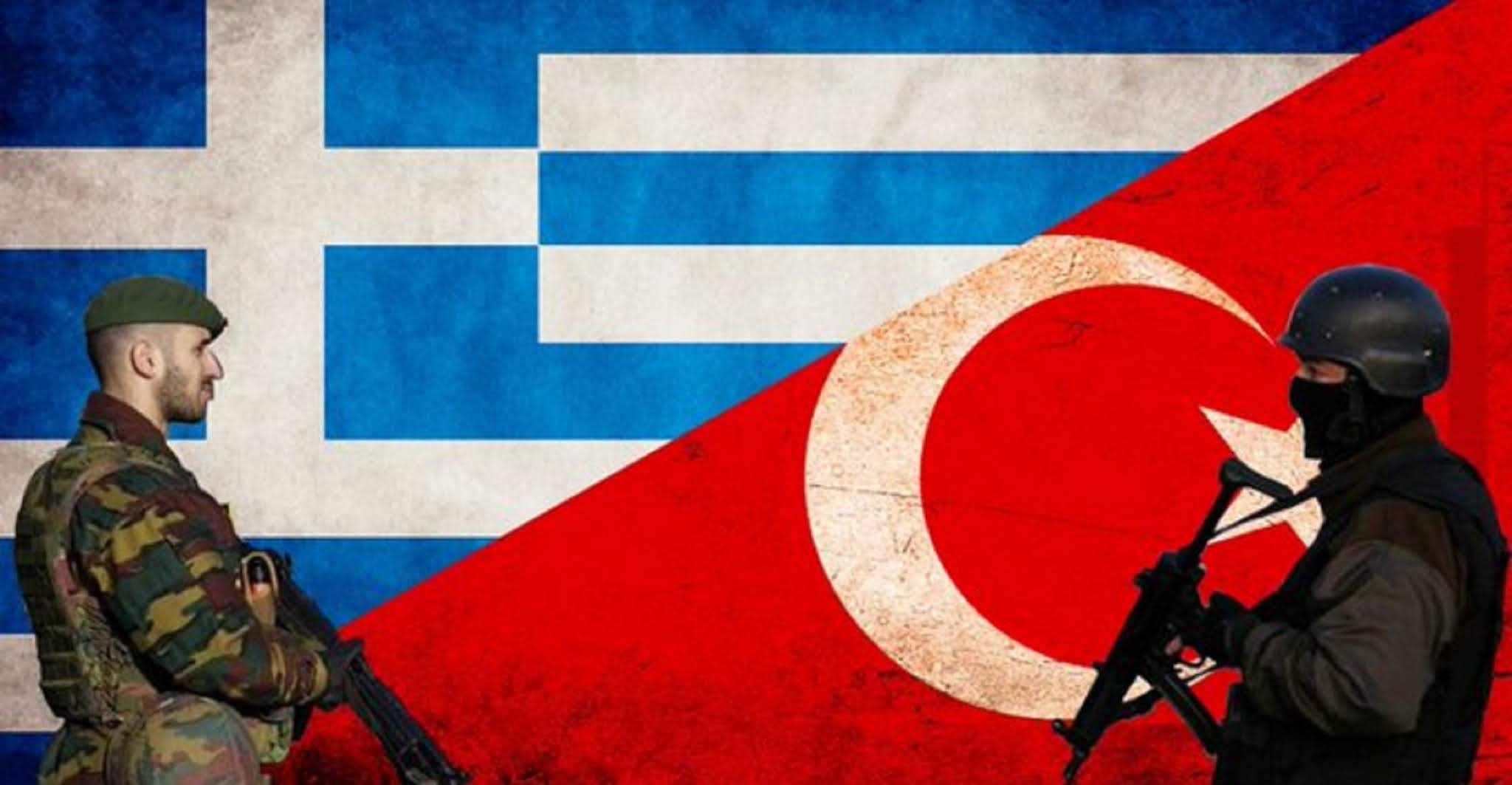Rising tensions in the eastern Mediterranean contributed to Turkey’s reconsideration of its foreign policy towards Greece, prompting it to enter into talks with the latter to avoid further military escalation and find ways to resolve the existing crises between them in the region. While some question the feasibility and effectiveness of this dialogue, others assert that it is the best existing way to calm tensions between the two countries in the eastern Mediterranean. This controversy raises the question of whether Turkey’s policy toward Greece has really changed, or whether it is a Turkish maneuver to achieve its strategic interests?
Dual policy
In the wake of the escalation between the two countries in the eastern Mediterranean in August 2020, which almost amounted to a direct naval confrontation, Turkey responded to the obligatory de-escalation imposed by the European Union to avoid the imposition of new sanctions on its already damaged economy.
Since then, Turkish foreign policy has witnessed remarkable fluctuations towards Greece, sending double, and sometimes conflicting, messages about the nature of Turkish policy towards Greece in the coming period. Two indicators of these fluctuations can be observed:
First: the temporary suspension of Turkish drilling operations in the eastern Mediterranean, with the potential of resumption. In December 2020, Turkey withdrew its seismic research vessel Oruc Reis from the Mediterranean Sea in response to European and international pressures. Since then, the country has not conducted any provocative actions in the Mediterranean, except for sending the TCG Cesme last February, claiming it was operating in international waters between the two countries, north of the conflict area in the eastern Mediterranean. Turkey also claimed that the Greek army harassed the ship, a claim that was denied by the Greek Ministry of Defense, which affirmed that the Greek Air Force was conducting exercises in the Aegean Sea at the time, and that the Greek planes were not in proximity to the Turkish ship. The Greek Foreign Ministry also highlighted that the presence of the Turkish ship in the area was an unnecessary step that does promote positivity.
Additionally, Turkish officials resumed their threatening tone in their rhetoric towards Greece, after a period of calm over the past months. On May 23, Turkish Defense Minister Hulusi Akar described Greek officials as doing their best to sabotage the path of positive efforts with their provocative actions and statements, in response to Greek officials’ statements accusing Turkey of pursuing expansionist policies, which Akar described as a baseless lie.
On the same day, Turkish Energy Minister Fatih Dönmez announced that his country will seek to open 8 new wells near the old wells, meaning Turkey will continue to follow its traditional policies of drilling without coordination with Greece, which may raise the stakes.
Renewed Tensions
Second: the resumption of dialogue between the two countries with the continued exchange of accusations. Despite Turkey and Greece’s voluntary return to the exploratory talks between them, which have been suspended since 2016, with the aim resolving the outstanding problems, they continue to trade accusations.
During the April 15 meeting between Greek Foreign Minister Nikos Dendias and his Turkish counterpart Mevlüt Çavuşoğlu in Ankara, the first visit by a Greek foreign minister to Turkey since 2015, with the aim of de-escalation between the two countries, the final press conference witnessed a sharp exchange between the two ministers when Dendias noted that “any violations of Greece’s sovereignty will be punished by Turkey”. This angered Çavuşoğlu, who described these comments as “unacceptable.”
Furthermore, the Turkish Foreign Minister kicked off his visit to Greece on May 30 by meeting the Mufti of the Muslim minority in Thrace, before meeting his counterpart in Athens. The move proved provocative to the Greek side, especially since Turkey continuously accuses Greece of not protecting the rights of its Muslim minority, a claim Greece vehemently rejects.
Several interpretations
The nature of the change in Turkish policy towards Greece can be explained from several angles:
1- Failure of the policy of provocations: It appears that Turkey has finally realized its threats and provocative acts in the Mediterranean are no longer useful, and will only serve to intensify the animosity with Greece and its allies in the European Union. This was reflected in the statement of Greek Minister of Development Adonis Georgiadis following the withdrawal of the Turkish ship Oruc Reis following the escalation of confrontations between the two parties, saying, “Turkey has begun to understand that this policy of provocations is not leading anywhere.”
Since talks between Greece and Turkey halted in 2016, Turkey’s provocations have generally not had a positive outcome with regard to its exploration for natural gas or marine resources in the Mediterranean, nor did they contribute to strengthening Turkish-European relations, but rather worsened them.
2- Avoiding sanctions from the European Union: There is no doubt that the European Union’s intervention in the last escalation by waiving the imposition of sanctions on Turkey was a major reason for the ensuing calm and Turkey’s withdrawal of its ship in December 2020. Turkey’s current wariness of European Union sanctions in response to the escalation with Greece comes as the former’s economy is witnessing a noticeable decline. This has resulted in rising domestic anger against Erdogan and his policies, and a fragile economy incapable of bearing any further blows. Greece is aware of this fact, and utilizes it to pressure Turkey. On June 5, Greece threatened it that it would push for sanctions if Turkey continued its “hostile” and “provocative” threats in the eastern Mediterranean.
Turkey is also currently attempting to avoid triggering tensions with the European Union, especially in light of the negative repercussions on relations as a result of Turkey’s purchase of the S-400 missile defense system from Russia.
3- Attempting to end the regional isolation: Recent years saw Greece succeed in blockading and isolating Turkey on the regional level. Athens began building stronger relations with the regional power concerned with Turkish politics, reflected in the establishment of the Mediterranean Gas Forum in January 2019, in which Cyprus, Egypt, France, Greece, Israel, Italy, Jordan, and the Palestinian National Authority participated, with the European Union and United States as observers, and the UAE as a nominated member. The message conveyed to Turkey was that Greece is not alone.
Athens also worked to develop its military relationship with Paris, with France agreeing to sell Rafale combat aircraft and naval frigates to Greece in 2020 and participating in joint military exercises. Additionally, the election of Joe Biden as US president has boosted relations between Greece and the United States at Turkey’s expense, especially as Athens and Washington are set to sign a new bilateral military cooperation agreement this summer.
Turkey is aware of these developments, and is attempting to end this regional isolation by highlighting its readiness for dialogue and cooperation with Greece and its intention to resolve the remaining, contrary to previous times. It is also striving to portray Greece as opposing improving relations, to regain or neutralize its opponents.
4- Avoiding armed confrontation: It is undeniable that Turkey and Greece cannot afford to engage in direct armed confrontation in the eastern Mediterranean. The two countries’ economies would not allow for this, and a confrontation would not be in Turkey’s interest, especially in light of the widespread regional support of Greece. Consequently, while Turkey seeks to avoid such an armed confrontation, it also highlights the possibility of military escalation to apply pressure in the pursuit of political gains by strengthening its military presence in the eastern Mediterranean and the Aegean Sea, and sending naval ships and warplanes to the disputed waters.
Effectiveness test
The limited change in Turkish foreign policy towards Greece comes as part of a broader foreign strategy that Turkey has recently pursued to restore its relations with regional and international parties. This began with beginning attempts to normalize relations with Egypt and Israel and ending regional isolation on the one hand, and coordinating mutual interests among all parties involved in the region on the other.
In this regard, restoring the dialogue and stalled talks between Greece and Turkey represents an important and essential step for building confidence between the two countries, and a positive guarantee that tensions in the eastern Mediterranean will not escalate again, especially in light of the European Union, NATO, and the United States’ support of these talks.
It is expected that Turkey will continue its dual policy in its relationship with Greece in the coming period, staying committed to pushing for dialogue and promoting rapprochement until its willingness is clear to international and regional actors, while pressing the military escalation card in the eastern Mediterranean with Greece as a means to pressure the latter and all parties to avoid escalation in a region rich in oil and natural gas resources.
This approach will test the effectiveness of this somewhat new policy towards Greece, and whether it will lead to a solution to the crisis, repositioning Turkey among countries with strategic interests in the eastern Mediterranean.
NATO and the United States have a major role to play in ensuring a positive outcome to the talks between Turkey and Greece to block Turkey from utilizing the document as a formality. They must first push the two countries to agree on the schedule of talks and determine the topics to be discussed, which has proven a contentious issue between the two parties thus far.
Conversely, mediators such as NATO and the United States may need both sides to provide evidence of goodwill and a genuine desire to develop relations through agreeing to cancel planned military exercises in the region, or at least halt them during the summer tourist season from July to September, as well as on national holidays for both sides. This would contribute to rebuilding confidence between the two countries, while dispelling Turkey’s feeling of isolation and integrating it into collective arrangements in the region.
In conclusion, the ongoing talks between Greece and Turkey are not expected to yield positive results in light of the current tension between the two countries, which was reflected in the statements of officials on both sides in recent days. However, continuing the dialogue is the best option at the present time to de-escalate the tensions between the two sides. Other means can be exploited to avoid the repercussions of the uncalculated military escalation, which would put the two countries in a more tense and dangerous predicament than before, especially in light of the presence of numerous ships at sea, and the increase of actors involved in the region.

